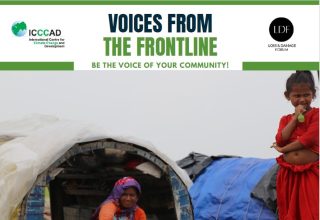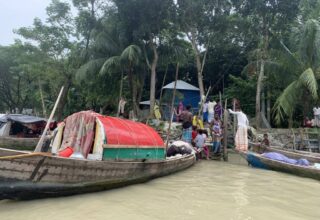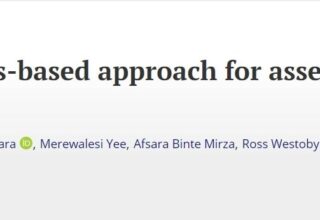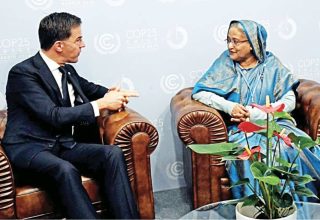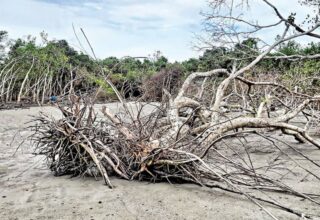The issue of loss and damage from climate change has been a very politically contentious issue in the international negotiations under the United Nations Framework Convention on Climate Change (UNFCCC) since its beginning. The reason is that developed countries did not want to acknowledge ‘loss and damage’, as they feared it would lead to claims of liability and compensation. Thus,for a long time they blocked these discussions, which were initially raised by the small island developing states (SIDS) and then also supported by the Least Developed Countries (LDC) group, of which Bangladesh is a key member.
Finally, at the 19th annual conference of Parties (COP19) of the UNFCCC held in Warsaw, Poland in December 2013, an agreement was reached to set up the Warsaw International Mechanism (WIM) on Loss and Damage with a twenty-member executive committee (with ten members from developed and ten from developing countries).
The executive committee of the WIM were given a two-year work plan with nine action areas and presented their report at COP22 in Marrakech, Morocco, last November.
There was also a further discussion on Loss and Damage during the negotiations on the Paris Agreement during COP21 in Paris, France in December 2015, and after a hard fought battle, it was agreed that loss and damage would be included as a separate Article (Article 8) of the Paris Agreement, thus recognising loss and damage as a third and different category of action in addition to mitigation and adaptation.
The Bangladesh government and civil society groups have been amongst the most vocal on the issue at the international level, and shortly after COP21 in Paris, the government, with coordination of the Ministry of Disaster Management, set up an inter-ministerial committee to examine this issue in the context of Bangladesh. This committee then commissioned a scoping study by a national expert group on what Bangladesh could do at the national level.
The expert group, which I had the privilege to be asked to chair, submitted its report to the government just before COP22, and we recommended that the government should consider setting up a national mechanism on loss and damage and develop a methodology to assess this issue from a climate change perspective, and also develop pilot scale methodologies to support those who are most likely to suffer from climate impacts in the future.
The Marrakech decision, which endorsed a new five year work programme, also encouraged countries to consider developing national systems for dealing with loss and damage going forward.
Most recently, during the third annual research conference on climate change held at the Independent University, in his keynote speech, Professor Myles Allen from Oxford University, one of the world’s leading experts in the science of attribution of climatic events to human induced climate change, lauded Bangladesh’s steps to examine the setting up of a national mechanism on loss and damage, and offered the support and inputs of his research team to help with the scientific analysis.
His research team in Oxford University includes several members from Bangladesh, and their scientific inputs would be extremely valuable for the country if the government decides to go ahead with the setting up of a national mechanism dealing with this issue.
At Marrakech, a number of other research groups, including some working on insurance, offered their support to Bangladesh and many other developing counties. Other LDCs in particular expressed interest to learn from Bangladesh on how to tackle loss and damage from climate change at the national level.
Thus, the government of Bangladesh, if it chooses to go ahead with setting up a national mechanism on loss and damage, has another opportunity to be a leader in learning, and then sharing its lessons with others.
Originally this article was published on Thursday January 12, 2017 at Daily Star. The author Dr. Saleemul Huq is the director of the International Centre for Climate Change and Development (ICCCAD) at the Independent University, Bangladesh (IUB).
Email: saleemul.huq@iied.org

